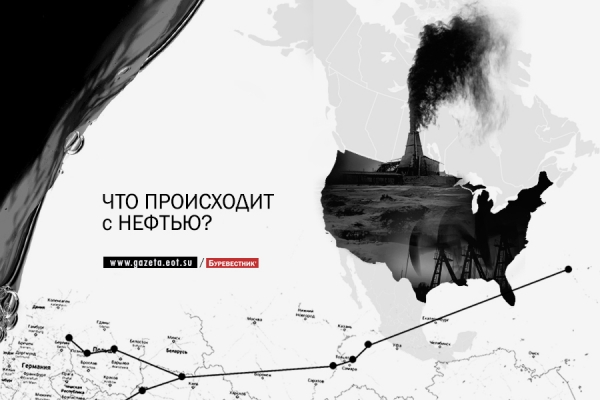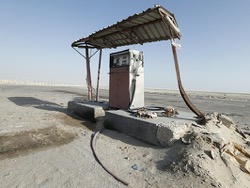
Saudi Arabia is seriously thinking about changing the economy
Saudi Prince Muhammad bin Salman spoke in the spirit of Alexei Kudrin when he was Finance Minister in 2003, proposing to establish in the Kingdom of the stabilization Fund. According to the Royal family, comes the “twilight of the oil century”, so the country needs money to get off the “oil needle”. How serious is to the words of Prince, it is written on 1 April, have tried to understand “Tape.ru”.
A Fund to help
In the Kingdom’s budget for the current year has a deficit of 87 billion dollars. This is less than last year’s deficit of 98 billion, however, the excess of income over expenditure remains significant. Compared with the previous year the revenues of the country will be reduced by $ 25 billion, and spending by 36 billion.
Interestingly, the Saudi Ministry of Finance indicated in his message that the budget was planned taking into account “very low prices” on oil, but did not specify what kind. Concerning the budgeted prices, the experts differed in their estimates: the economist Fund Ashmore Group’s John Sfakianakis suggested that this deficit corresponds to a weighted average price of 37 dollars per barrel of Brent, chief economist at Jadwa Investment Fahad al-Turki said that Saudi Ministry of Finance has reinsured more radical, setting the price of 29 dollars per barrel.
The Russian Finance Ministry turned out to be too optimistic, assuming a price of 50 dollars per barrel. While independent analysts in Russia agree that the average annual price will be $ 45.
Anyway the monarchy is concerned with the creation of a sovereign Fund of two trillion dollars to overcome the “oil curse”. For comparison: the volume of the Russian stabilization Fund (before it was divided into Reserve Fund and national welfare Fund) reached its maximum volume in terms of dollars in January 2008, but did not exceed $ 157 billion. The current volume of the reserve Fund of Russia is three trillion 747,06 billion roubles, or almost $ 55 billion in terms of the current rate.
Where will the money, given the need to cover the budget deficit? Monarchy intends in 2017 to sell up to five percent of the shares of the state oil company Saudi Aramco. Every day the company produces more than 10 percent of global oil supply, controls a large network of oil refineries and petrochemical plants. The proven reserves of Saudi Aramco in 2014 exceeded $ 260 billion barrels. All business of the company, according to expert estimates, can cost more than 10 trillion dollars. If this evaluation will coincide with the market valuation of the shares of the oil giant, Saudi Treasury will be able to count on at least half a trillion.
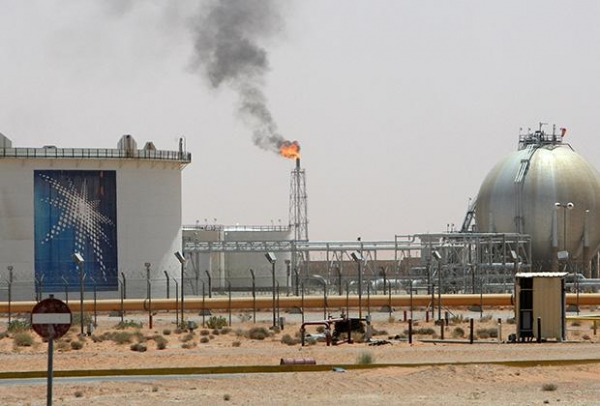
Production Saudi Aramco
Photo: Ali Jarekji / Reuters
It is colossal media. For comparison, the market value of the largest non-state oil producer — American Exxon Mobil — only reaches 317 billion.
The plan “refusal of oil” Saudi Arabia has presented to potential investors back in January of this year. Then the Minister of industry and trade of the country, Tawfiq al-rabiah has admitted during the presentation that the Kingdom was the victim of “Dutch disease” — an acute economic dependence on exports of one or two kinds of raw materials. Now that Riyadh is ready to mobilize to correct the situation.
The fact that the largest exporters of the realized harm, depending on one resource, of course, a positive point for the further development of the state’s economy. But the questions arise: does one of the most petroleum dependent economies the opportunity to diversify and do just a big money bag. According to analysts, the country is too traditional for a radical restructuring of the economy, in society too strong of clan and family relations, in the economy dominated by the state and the enterprise culture, to put it mildly, leaves much to be desired.
Competitor breathing down my back
In the run-up scheduled for April 17 meeting of the largest producers of oil, which is expected to agree on freezing the prey, Prince Muhammad bin Salman said that he would go in only with an eye on Iran. If Tehran would freeze its production to Riyadh will join the agreement; no — then everything will remain the same. This statement of the Prince brought down quotes on the world oil markets more than two percent. If two major players of the oil market refuses to freeze the prey, the agreement, which is so persistently sought by Russia, Venezuela and Ecuador, would be meaningless.
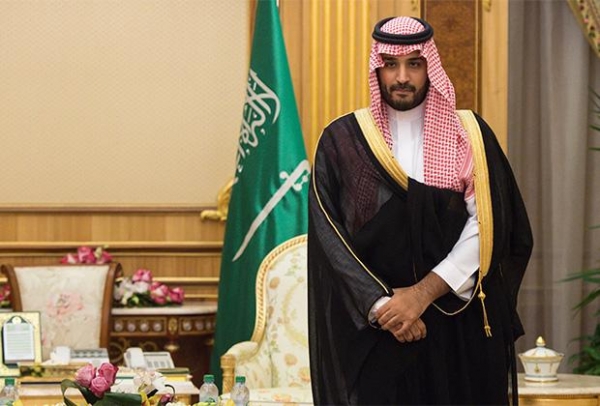
Muhammad Ibn Salman
Photo: Bernd von Jutrczenka / DPA / Globallookpress.com
Iran, in turn, said that the will meet other oil exporters only after its own oil production will reach four million barrels per day. Now, according to OPEC, Iran produces 3.1 million barrels per day. Iran is unprofitable to freeze the production in conditions when the country recently lifted Western sanctions — we need to catch up and re-capture the market share, occupied by Saudi Arabia and Russia. This can be done first of all by providing good discounts. In fact, the Iranian-Saudi “war discounts” has already begun. To stop it extremely difficult.
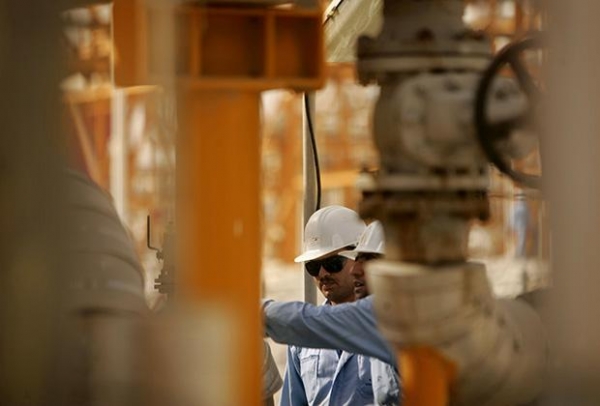
Oil production in Iran
Photo: Morteza Nikoubazl / Reuters
If the statement of the Saudi authorities about the upcoming economic diversification is serious, then hope for a freeze of production is even more elusive. In this case, both competitors will try to squeeze out of the oil market maximum and as quickly as possible. In these circumstances, the cessation of exports was not at hand to both of them.
Low probability of reaching an agreement between the countries-oil exporters is confirmed by the largest hedge funds which “just jealous because Greece had” oil futures (i.e., sell contracts in the hope to buy them in the future at a lower price). As a result, the share of “short” positions (betting on a fall) of oil WTI has grown in the last week of March by 17 percent. This is the biggest jump since November — 75,598 up to thousands of futures and options. The number of net long positions (bets on rising prices) for WTI decreased by 6.3 percent to 221,016 thousands of contracts.
If we talk about the possibility of diversification of the economy, even with significant financial resources, which States Riyadh, the ability to reorient the economy in doubt. In this sense, the main economic rival and principal strategic foe of the Saudi monarchy — Iran — has much more chances of successful restructuring. The thing is that today Saudi Arabia is almost nothing to sell except oil. The elite of the country (in fact, members of a numerous clan of al Saud) received an excellent education in the “fat years”, but this is not enough to go to high-tech production of other goods.
The fact that the country has a quarter of world oil reserves, in fact hindered the development of technologically advanced industries. Makes no sense to invest in technology when the money just keep bubbling out of the ground. The oil industry still provided 45 per cent of the country’s GDP and three-quarters of fiscal revenues and exports and 90 per cent were petroleum products.
Vocational education in the country practically is not developed, the vast majority of consumer goods and industrial inputs are imported. And domestically the main part of the employed in the industry of the population was foreign workers — immigrants from Pakistan, Bangladesh, India and other countries.
Geopolitical rival of the Kingdom is against this background, much more powerful. First of all, Iran’s population is twice more than 78 million people, according to expert estimates, compared to almost 29 million Saudis. In addition to its developed oil industry in the country produces natural gas, coal, copper, iron, manganese and lead-zinc ore. Fairly well-developed machine building and Metalworking, food and textile industry, carpet making, metalware. Agriculture in Iran is also at quite a decent level: the country produces wheat, barley, rice, pulses, cotton, sugar beet, sugar cane, tobacco, tea, nuts, pistachios. 7.5 million irrigated hectares of land.
But the main thing is the sanctions that have been imposed on Iran, essentially gave the country the opportunity to avoid heavily dependent on petrodollars. Of course, oil was exported, and dependence on resources, Iran has — after all, it’s 45 percent of budget revenues. But it is not as critical as in Saudi Arabia.
Get rid of the “Dutch disease” is not so easy even with a strong desire. In Russia the problem of economic diversification, the development of innovative industries and the departure from petroleum dependence puzzled at least in 2003. Since then, quite frankly, achieved modest success. And it’s not the size of the state Fund, and that, due to the relatively easy source of income to seek other sources do not have sufficient incentive. For a real cancellation of the energy dependence needs to be major disasters to disappear there was really nowhere to go.



